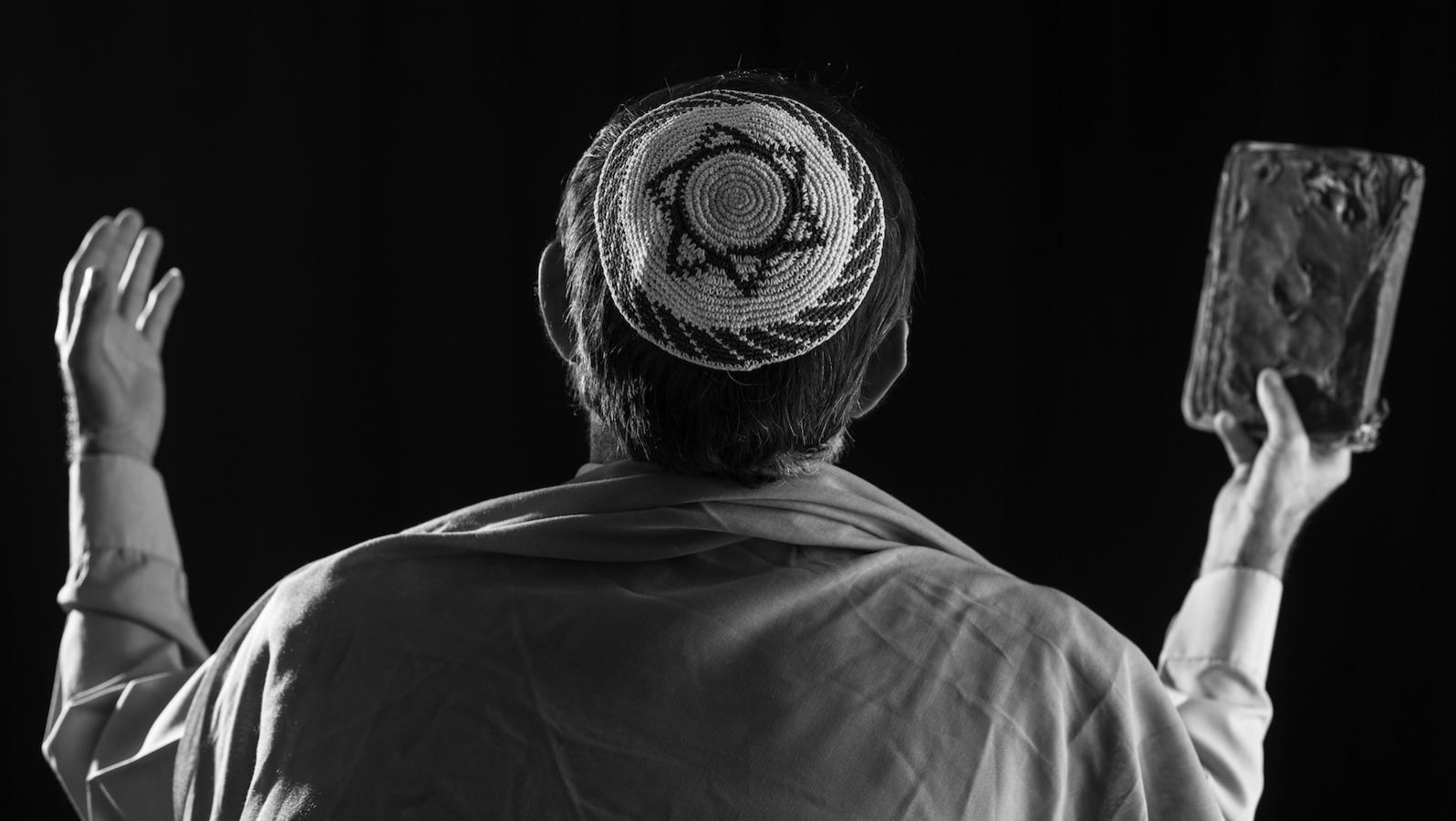The period from Rosh Hashanah to Yom Kippur is known as the Ten Days of Repentance. This name appears in sources from the Land of Israel, including the Jerusalem Talmud.
The concept of these days as a special unit of time in the Jewish year dates at least to the third century BCE. Rabbi Yohanan, who lived in the Land of Israel during that period, describes his conception of divine judgment and inscription in this season:
“Three books are opened in heaven on Rosh Hashanah, one for the completely wicked, one for the completely righteous and one for those in between. The completely righteous are immediately inscribed in the book of life. The completely wicked are immediately inscribed in the book of death. The fate of those in between is suspended until Yom Kippur. If they do well, they are inscribed in the book of life. If not, in the book of death” (Rosh Hashanah 16b).
The Ten Days of Repentance are seen as an opportunity for change. And since the extremes of complete righteousness and complete wickedness are few and far between, Rosh Hashanah functions, for the majority of people, as the opening of a trial that extends until Yom Kippur. It is an unusual trial. Most trials are intended to determine responsibility for past deeds. This one, however, has an added dimension: determining what can be done about future deeds. The Ten Days of Repentance are crucial to the outcome of the trial, since our verdict is determined both by our attitude toward our misdeeds and by our attempts to rectify them by changing ourselves.
Repentance, Prayer and Charity
The famous piyyut (religious poem) Unetanah tokef discusses the fact that between Rosh Hashanah and Yom Kippur there is an opportunity “to avert the severe decree” through three actions: repentance, prayer, and charity. The requirements for repentance include a change of mind, a feeling of regret, and a determination to change, along with an effort to repair the effects of one’s misdeed.
The efficacy of repentance and prayer were the subject of a debate between Rabbi Judah and Rabbi Joshua ben Levi, two early third‑century sages from the Land of Israel. Rabbi Judah teaches that “repentance cancels half the punishment for sin while prayer cancels all the punishment,” while Rabbi Joshua takes the opposite viewpoint. Another early amora (Talmudic sage), Rabbi Hanana bar Yitzhak, recounted a legend of a meeting between Adam and Cain.
Adam said to him, “What happened regarding your punishment?” Cain replied, “I repented and it was mitigated.” When Adam heard this he banged his head and said, “So great is the power of repentance and I did not know about it!”‘
The extremes to which rabbinic Judaism has gone to convince people of the possibility of repentance is illustrated in the Talmud by the story of Elazar ben Durdaya, a man who “sought out every harlot in the world.”
Once he traveled far just to enjoy the favors of one particular woman who spit in his face and said to him, “Just as this spittle will never return whence it came, so will Elazar ben Durdaya never achieve repentance!” He was so startled and troubled by this that he immediately attempted to repent. He went and sat between two mountains and hills and said, “Mountains and hills, beg mercy for me!” They replied, “Before we can do this for you, we must beg mercy for ourselves, as it is said, ‘For the mountains may move and the hills be shaken'” (Isaiah 54:10).
He said, “Heaven and earth, beg mercy for me!” They replied, “Before we can do this for you, we must beg mercy for ourselves, as it is said, ‘Though the heavens should melt away like smoke, and the earth wear out like a garment.'” He said, “Sun and moon, beg mercy for me!” They replied, “Before we can do this for you we must beg mercy for ourselves, as it is said, ‘Then the moon shall be ashamed and the sun shall be abashed'” He said, “Stars and planets, beg mercy for me!” They replied, “Before we can do this for you we must beg mercy for ourselves, as it is said, ‘All the host of heaven shall molder'”He said, “This is dependent upon me alone!” He placed his head between his knees and cried bitterly until he expired. At that moment a voice from heaven declared, “Rabbi Elazar ben Durdaya has been received in the world to come” (Avodah Zarah 17a).
An Equal Opportunity
Another important rabbinic tale about repentance concerns the famous apostate Elisha ben Abuya, who was urged by his pupil Rabbi Meir to repent, but replied that he could not. When asked why that was so, he explained that he had once ridden by the Holy of Holies on Yom Kippur and had heard a voice proclaim, “Return, O rebellious children, I will heal your afflictions, except for Elisha ben Abuya who knew my power and rebelled against me.” Saul Lieberman once remarked that this was Elisha’s greatest apostasy, since repentance is always open to everyone.
While repentance is the primary act to be performed during the Ten Days of Penitence, charity and prayer are no less important. Tzedakah, charity or acts of righteousness, requires that we look outside ourselves and see the needs of others. What can we do to help those who need us, financially or otherwise? In many synagogues, charity plates are put at the door before Yom Kippur so that people can make donations at that time if they have not yet done so. It is important to point out that the emphasis placed on tzedakah during this crucial time in the Jewish year merely serves to impress upon us the need to make charity a part of our lives in general. Prayer, the other action that can mitigate our sentence, as it were, is a further method of introspection and change of character. The daily prayers and the special Sabbath between Rosh Hashanah and Yom Kippur intensify the usual services in a special way.
This article is excerpted with permission from Entering the High Holy Days, published by the Jewish Publication Society.
Rosh Hashanah
Pronounced: roshe hah-SHAH-nah, also roshe ha-shah-NAH, Origin: Hebrew, the Jewish new year.
Talmud
Pronounced: TALL-mud, Origin: Hebrew, the set of teachings and commentaries on the Torah that form the basis for Jewish law. Comprised of the Mishnah and the Gemara, it contains the opinions of thousands of rabbis from different periods in Jewish history.
Yom Kippur
Pronounced: yohm KIPP-er, also yohm kee-PORE, Origin: Hebrew, The Day of Atonement, the holiest day on the Jewish calendar and, with Rosh Hashanah, one of the High Holidays.



